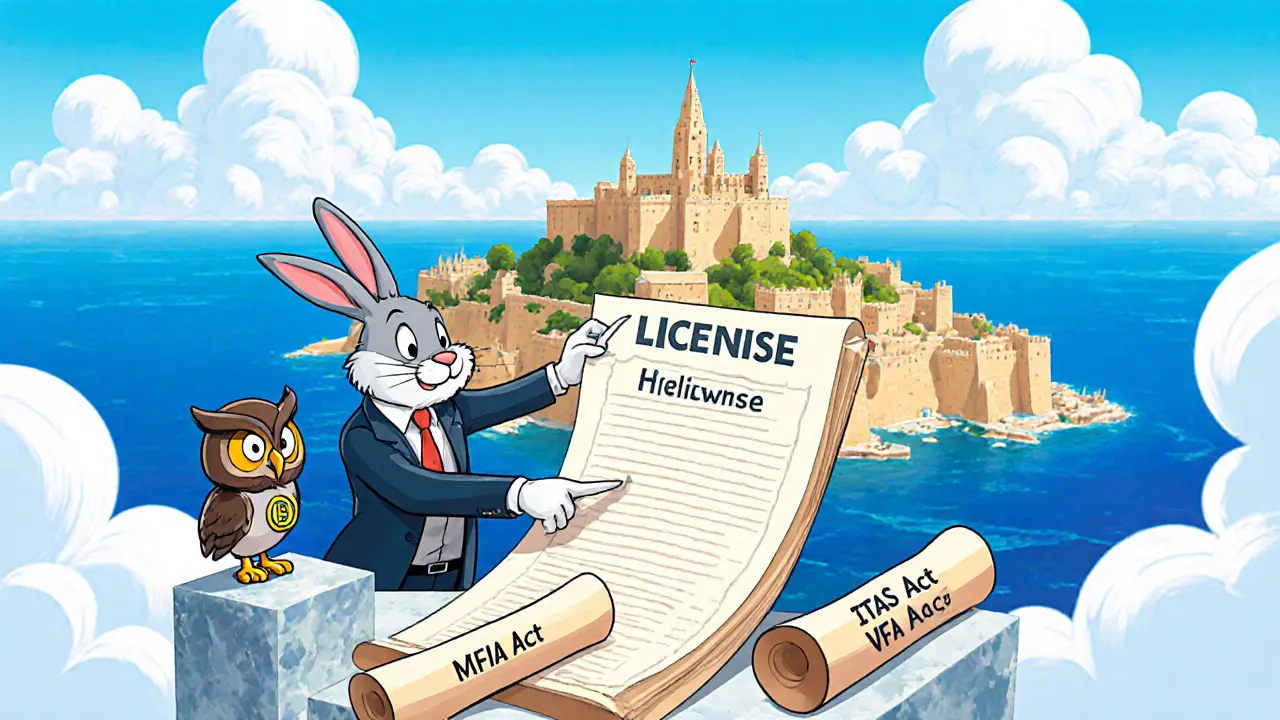MiCA Malta: Understanding the EU Crypto Regulation and Its Impact
When talking about MiCA Malta, the local implementation of the EU Markets in Crypto‑Assets Regulation that sets out rules for crypto assets, service providers and investors in Malta. Also known as MiCA (Malta), it bridges European Union directives with Malta’s own financial oversight. The European Union, the political and economic union that created the MiCA framework to harmonise crypto rules across member states drives the core standards, while the Malta Financial Services Authority, the national regulator responsible for licensing and supervising crypto firms under MiCA Malta enforces them locally. Together they form a safety net that aims to protect consumers, prevent money laundering, and give crypto businesses clear guidelines.
Key Areas Covered by MiCA in Malta
MiCA Malta encompasses several distinct subtopics. First, it classifies crypto assets into three buckets: crypto‑assets that function as money (stablecoins), utility tokens that give access to a service, and asset‑referenced tokens linked to other assets. This token classification requires firms to publish detailed whitepapers and undergo a vetting process before offering them to the public. Second, the regulation imposes strict AML/KYC obligations; every exchange, wallet provider, or custodial service must verify user identities and monitor transactions for suspicious activity, aligning with the EU’s Fifth Anti‑Money‑Laundering Directive. Third, it sets capital and governance requirements for crypto‑asset service providers, meaning they need to hold a minimum amount of reserves and maintain robust risk‑management frameworks.
Stablecoins receive special attention under MiCA Malta. Defined as crypto‑assets that aim to maintain a stable value by being pegged to a fiat currency or a basket of assets, they must be backed by high‑quality liquid assets and undergo regular audits. This ensures that a user can redeem a stablecoin at its advertised value without facing liquidity shortfalls. The stablecoins, crypto‑tokens designed to keep a stable price by being collateralised with fiat or other assets therefore become a trusted bridge between traditional finance and decentralized finance, but only if they meet the rigorous transparency standards set by MiCA.
For crypto exchanges operating in Malta, MiCA Malta requires a licence from the MFSA and mandates ongoing compliance reporting. This includes maintaining segregation of client funds, implementing cybersecurity safeguards, and providing clear dispute‑resolution mechanisms. The regulation also introduces a supervisory sandbox where innovative projects can test new services under relaxed rules, provided they report outcomes to the regulator. This sandbox approach encourages experimentation while keeping user protection front‑and‑center.
Investors benefit from the increased clarity MiCA Malta brings. By standardising disclosure, it becomes easier to compare offerings, assess risks, and understand the legal recourse available if something goes wrong. Moreover, the regulation’s focus on consumer protection means that fraud‑prone schemes face higher barriers to entry, creating a healthier market overall.
In practice, firms looking to comply with MiCA Malta will need to draft a comprehensive whitepaper, set up AML/KYC pipelines, allocate sufficient capital reserves, and engage with the MFSA throughout the licensing process. Many service providers are already aligning their internal policies with these requirements, and you’ll see a wave of updated terms of service, privacy policies, and compliance dashboards across the Maltese crypto ecosystem.
All of this may sound like a lot, but the core idea is simple: MiCA Malta is about creating a trustworthy environment where crypto innovators can thrive without sacrificing investor safety. Below you’ll find a curated collection of articles that break down each piece of the puzzle— from token classification deep‑dives to step‑by‑step guides on getting your exchange licensed, and everything in between. Dive in to see how the regulation shapes the projects you care about and what actions you can take right now.

Malta Crypto Business License Requirements 2025 - Complete Guide
A 2025‑focused guide covering Malta's crypto licensing rules, license classes, costs, application steps, and future MiCA developments for businesses looking to operate in the EU.